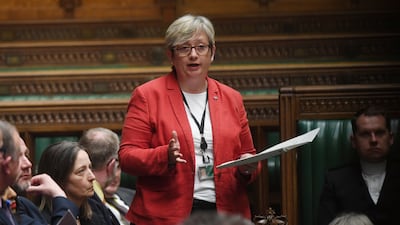A group of peers and MPs told the UK government that plans to overhaul espionage laws risk an “unnecessary interference with human rights”.
Changes to the National Security Bill “go too far”, said the Joint Committee on Human Rights (JCHR), and put freedom of speech at risk.
The committee called on ministers to make amendments to the proposals and ensure there can be adequate checks on how it is used.
The bill has been described as the biggest overhaul of security legislation for a generation and is expected to provide the security services with greater powers to tackle threats from spies and state-backed sabotage, as well as reform espionage laws like the Official Secrets Act to better tackle threats from hostile states such as Russia and China.
It will, for the first time, make it an offence to be an undeclared foreign spy in the UK and introduce a foreign interference offence to disrupt illegitimate influence activity done for, or on behalf of, a foreign state.
The new powers could help crack down on cases like that of the suspected Chinese spy Christine Lee who was accused of targeting politicians, according to Whitehall officials.
This year, MI5 issued a rare security alert, telling MPs that Ms Lee, a prominent London-based solicitor, had engaged in “political interference activities” on behalf of China’s ruling communist government.
But according to the committee’s findings, the bill “risks unnecessary interference with human rights by overextending powers relating to espionage offences and criminalising behaviour that does not pose a threat to national security.”
“It is right that legislation governing espionage offence be updated to better reflect the reality of the world in the 21st century,” said committee chairwoman Joanna Cherry.
“However, in its current guise the National Security Bill goes too far, with offences whose breadth puts at risk freedom of speech and freedom of assembly, an unnecessary extension of criminal immunity and measures that undermine the key principle of equal access to justice,” she said.
“We call on the government to revisit the bill and bring forward amendments to ensure that it protects national security without needlessly criminalising actions that pose no risk to it.
“It must also remove necessary impediments to the access of legal aid and damages to ensure that fundamental principles of justice and human rights are protected.”

The report comes as another element of the bill, which will make clandestine political activity by foreign agents illegal in the UK, was introduced to Parliament.
Anyone working for a foreign power will have to sign a register declaring who they are working for or face up to two years in jail under the plans.
The Foreign Influence Registration Scheme (FIRS), which is similar to rules already in force in the United States and Australia, aims to protect the UK’s institutions from secret efforts by foreign powers to influence them.
The bill will create offences for acts of sabotage and foreign interference and make it easier to disrupt perpetrators preparing to carry out such crimes.
Courts will also be given greater powers to hand down longer sentences for foreign state backed crimes under the proposals.
It is understood very few prosecutions take place under current espionage laws, but it is hoped this will increase if the new measures are adopted, as well as acting as a deterrent.
Where prosecutions are not realistic, Asbo-style restrictions on movements and travel, and where suspects can live and work, called State Threat Prevention and Investigation Measures (Stpims) could be used as a “last resort”.
These are similar to orders placed on a small number of terrorism suspects known as Terrorism Prevention and Investigation Measures (Tpims), where the person in question is monitored by the police and MI5 and any breach of the restrictions is treated as a criminal offence.
The measures could also block terrorists from receiving civil damages payouts which could be used to fund their crimes.


